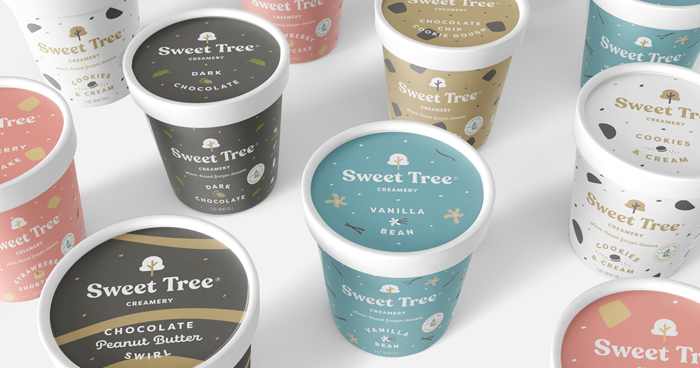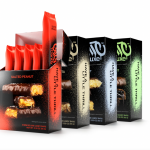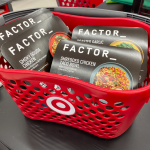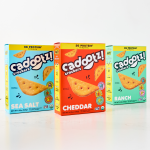Ice Cream Distributor & Innovator Partner on Value Oriented, Plant-Based Play

The ice cream category, particularly plant-based, may already be crowded, but two New England-based ice cream innovators believe there’s still white space in retail for a value-oriented, plant-based offering. Sweet Tree Creamery, once a food-service only partnership between the FoMu brand of plant-based ice cream and its co-packer, New England Ice Cream (NEIC), is now launching in stores.
The concept was seeded several years ago when Deena Jalal, the founder and owner of FoMu and cookbook author, met Bruce Ginsberg, the founder and CEO of co-packer NEIC. The copacker distributes a variety of frozen products across six states and 10,000 locations including CVS, 7-11, Walgreens and Rite Aid stores as well as at universities and public schools. The two decided to launch their own plant-based offering as 50/50 partners, and after a year of R&D, Sweet Tree launched in food service in late 2019.
A month ago, in December, the pair decided to launch Sweet Tree in supermarkets. To stand out on shelf, the brand eschews the more common format of pints, instead focusing on family-sized quarts.
Since its retail launch this winter, Sweet Tree has added roughly 50 points of distribution, with most coming online over the last month. Available in Vanilla Bean, Dark Chocolate, Chocolate Peanut Butter Swirl, Cookie Dough and Cookies and Cream, each coconut cream-based quart retails in stores for roughly $9.99. Many non-dairy pints by premium brands retail for $6 to over $7.50 per pint.
Covid-19 is at least partially responsible for the move to retail, with Jalal noting the pandemic has made growth in food service challenging. She still runs FoMu, which is a separate business and sold through the company’s four scoop shops and in 50 stores throughout New England. However, growth has been restricted as FoMu’s commissary has approached its capacity limit, while its more hands-on production methods and premium ingredient costs mean that a pint of FoMu retails for $9.99 to $11.99. NEIC, she said, offers a way to produce and distribute a plant-based ice cream at a lower price point and more efficiently.
“Sweet Tree allows us to sell in a larger format to restaurants and food service at a price point that they can still resell and make a profit off of,” Jalal said. “It’s a similar relationship in the pint and quart format at retail.”
In foodservice, the brand offers three gallon tubs. The company hopes many of the restaurants, beach concession stands, schools and universities where NEIC distributes will bounce back in summer 2022, offering new opportunities for food
The company plans to eventually launch plant-based novelties, a segment of the frozen dessert category that is seeing tremendous growth, and may also look to expand beyond NEIC’s distribution radius, Jalal added.
Over 50% of frozen treat buyers perceive non-dairy frozen treats to be “healthier” than dairy ones, research firm Mintel found. Packing 300 calories, 20 grams of fat and 23 grams of sugar in each serving, Sweet Tree is not a diet product, however. But Jalal and Ginsberg believe Sweet Tree’s great asset could be its price. In an inflationary climate, a slightly premium, but still value-oriented, ice cream offering could resonate with consumers, they believe.
















